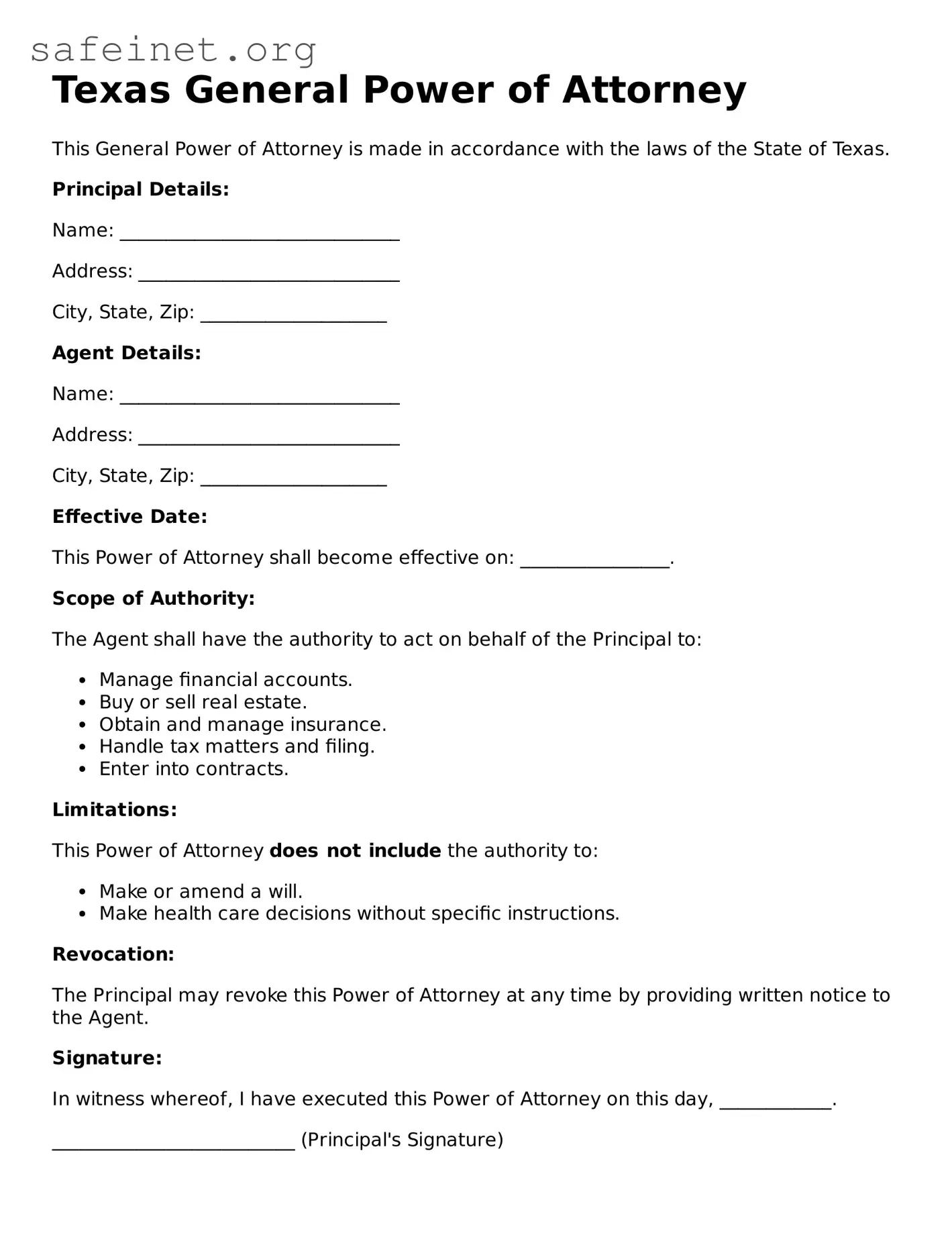Texas General Power of Attorney
This General Power of Attorney is made in accordance with the laws of the State of Texas.
Principal Details:
Name: ______________________________
Address: ____________________________
City, State, Zip: ____________________
Agent Details:
Name: ______________________________
Address: ____________________________
City, State, Zip: ____________________
Effective Date:
This Power of Attorney shall become effective on: ________________.
Scope of Authority:
The Agent shall have the authority to act on behalf of the Principal to:
- Manage financial accounts.
- Buy or sell real estate.
- Obtain and manage insurance.
- Handle tax matters and filing.
- Enter into contracts.
Limitations:
This Power of Attorney does not include the authority to:
- Make or amend a will.
- Make health care decisions without specific instructions.
Revocation:
The Principal may revoke this Power of Attorney at any time by providing written notice to the Agent.
Signature:
In witness whereof, I have executed this Power of Attorney on this day, ____________.
__________________________ (Principal's Signature)
Witnesses:
__________________________ (Witness 1)
__________________________ (Witness 2)
Notary Public:
State of Texas
County of ______________
Subscribed and sworn before me this __ day of ______________, 20__.
__________________________ (Notary Public Signature)
